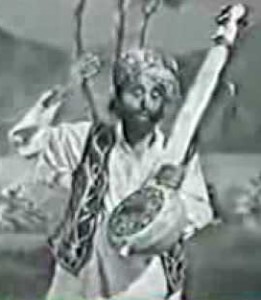
They strive for ihsan (perfection of worship), as detailed in a hadith: Ihsan is to worship Allah as if you see Him if you can't see Him, surely He sees you. These orders meet for spiritual sessions (majalis) in meeting places known as zawiyas, khanqahs or tekke. Historically, Sufis have often belonged to different ṭuruq or orders – congregations formed around a grand master referred to as a wali who traces a direct chain of successive teachers back to the Islamic prophet, Muhammad. Practitioners of Sufism have been referred to as Sufis (from صُوفِيّ ṣūfiyy / ṣūfī). values, ritual practices, doctrines and institutions which began very early in Islamic history and represents the main manifestation and the most important and central crystallization of mystical practice in Islam. Sufism (Persian: صوفی گری), or Taṣawwuf (Arabic: التَّصَوُّف), variously defined as Islamic mysticism, the inward dimension of Islam or the phenomenon of mysticism within Islam, is mysticism in Islam, characterized.

He descended from a long line of jurists, theologians, and mystics, including his father, who was known by followers of Rumi as “Sultan of the Scholars.” When Rumi was still a young man, his father led their family more than 2,000 miles west to avoid the invasion of Genghis Khan’s armies. Rumi was born as Mohammed Jalaluddin Balkhi, on SeptemC. Sarmad Sindhi – Ahmed Mughal – Mai Bhaagi – Mumtaz Molai – Dhol Faqir – Maanjhi Faqir Gul Hassan fakir sur kohyari poet ghulam fatma laal Sanam marvi TP Naz Production SR Production And that includes all types of spiritual music -that which uplifts you as well as that which engages you in quiet, inward contemplation.Allan Faqir marui subah milandam soomra muhammad sufi official Instead he seems to want to carve out his own identity, his own niche, when it comes to singing spiritual music. One gets the impression that although Faheem may have followed in his very famous father’s footsteps, he’s not interested in becoming a copy of him. Marui is atmospherically a bit dark, yet spiritual. The music is predominantly through the stringed instruments played by the musicians, and include the acoustic and bass guitar, and Faheem’s own ektara - an instrument favoured by most Sufi musicians. This one is a bit mellow compared to Machkan. Other than Machkan, I would recommend Faheem’s rendition of Marui by Shah Abdul Latif Bhittai, which he did for the Lahooti Live Sessions, sometime in 2013. There’s also footage comparing Turkey’s dervishes in sema with our own whirling ‘dervishes’ in red at Bhittai’s shrine. There’s also Faheem driving to the edge of the Tharparkar desert and walking through it as if in search for something (perhaps himself?). There’s the usual montage of famous heritage sites in Sindh. The video shows him sitting next to a bonfire singing the lyrics. It’s a light joyful number that’s easy to follow. The music is simple - there is the keyboard, ektara, guitars and, later, the tabla when the song picks up. The first half is Bhittai’s verse and the second half is Shah’s. This too is a mash-up, but of poetry, by Shah Abdul Latif Bhittai and Bulleh Shah. You never know…įaheem later released his version of Machkan online. He looked so excited, one almost hoped they would be plotting a collaboration. He was talking to another Sindhi Sufi music giant, Sanam Marvi, after her performance that evening. It still remains a great live performance for me to re-watch - and relive - online.Īlthough Faheem Allan Faqir may have followed in his famous father’s footsteps in pursuing music, he’s not interested in replicating him

It also can’t replicate the energy of the audience.īut then the sound that travels through the air is different in texture than that which is recorded directly through a cable. While the vocals are perfect, the instrumentation seems a bit muted. What’s missing from the recorded version available online is that the mix misses out on really enhancing the overall sound. It only gives you a little flavour of the performance, nothing more. Considering it’s 10 minutes long, a little warm up seems almost necessary.īut don’t judge the performance by the video that’s available on YouTube. Personally, I felt the song gets off to a slow start but picks up after a couple of minutes. I first took notice of Faheem Allan Faqir earlier this year, at the last Lahooti Melo music festival in Jamshoro - where he and his family hail from - when he took to the stage for an impromptu live performance with The Sketches on a mash-up of Nind Nashe Vich and Sawali Hoon. He is, of course, the son of the legendary Allan Faqir. That’s how I feel about Sindhi spiritual singer and musician Faheem Allan Faqir’s work. There’s music that makes your heart sing and you can’t help but find yourself happily swaying to it.


 0 kommentar(er)
0 kommentar(er)
